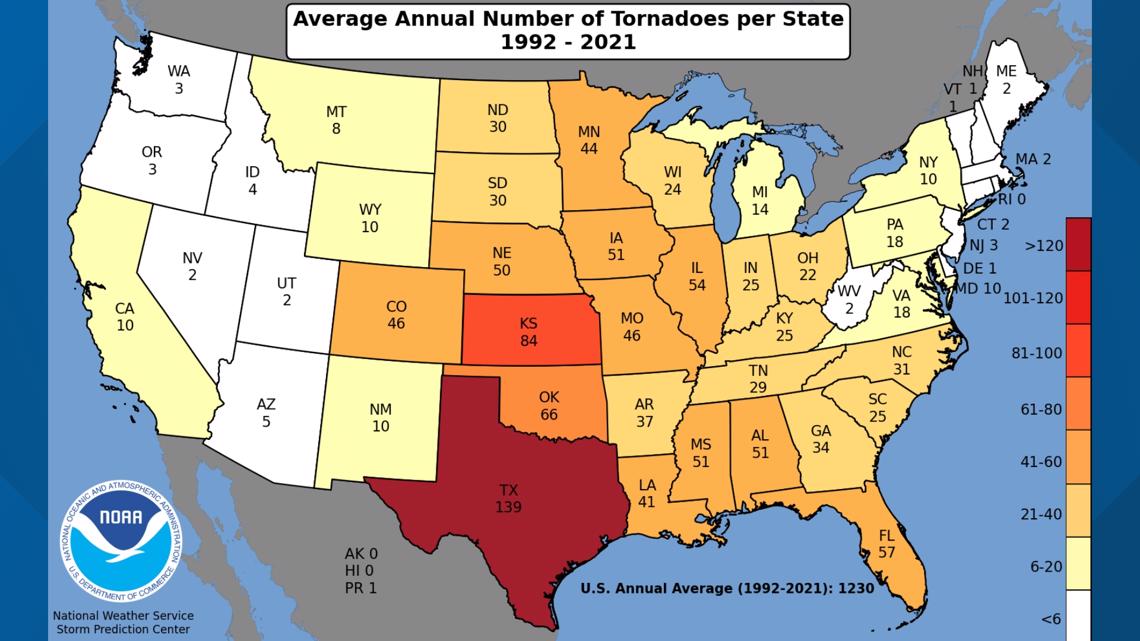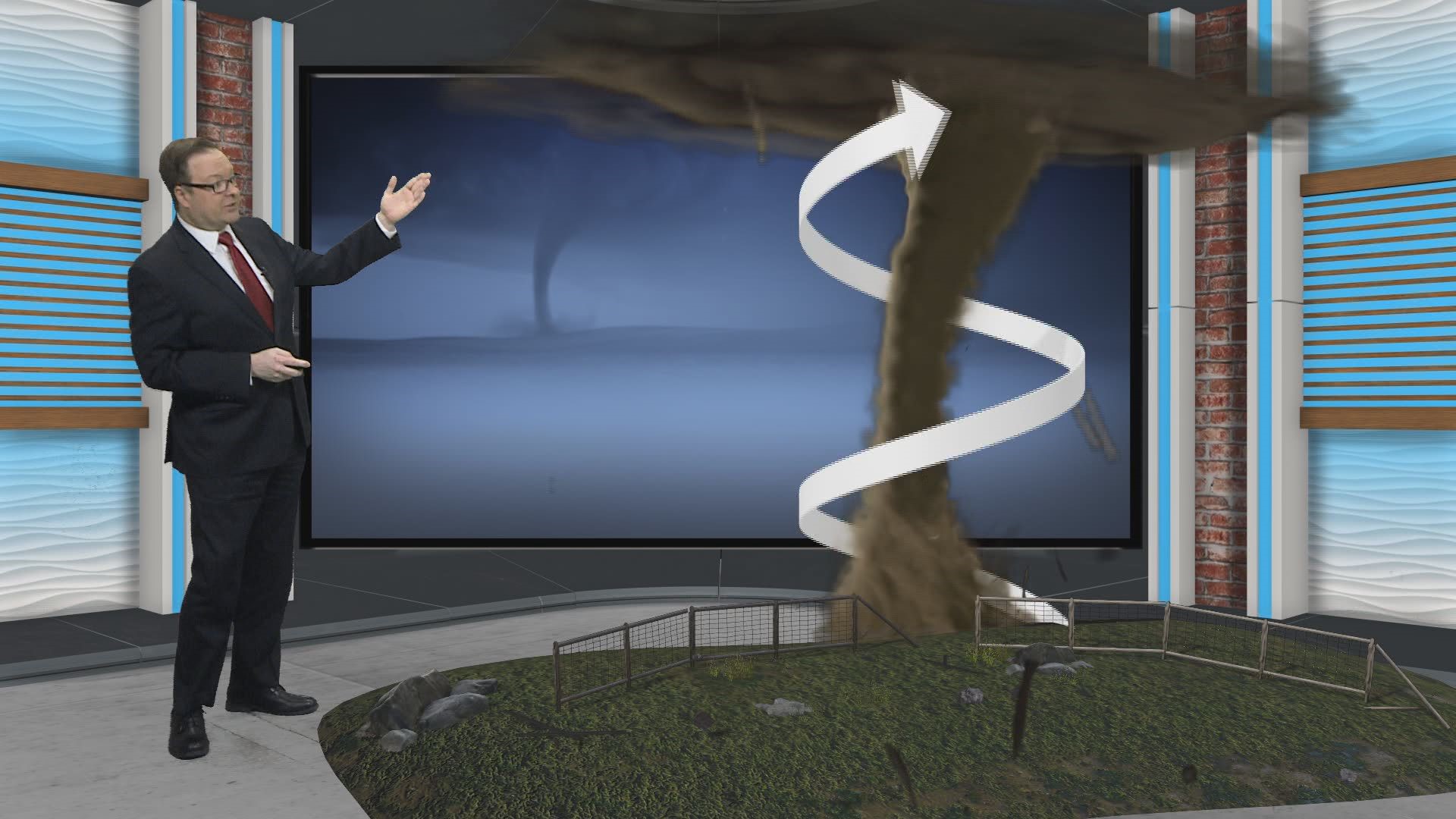NORFOLK, Va. — Note: On March 7, the Virginia Department of Emergency Management held their annual tornado drill across the state, beginning at 9:45 a.m. It is just a drill.
A tornado is a violently rotating column of air that extends from the base of a thunderstorm.
They are capable of destroying buildings, uprooting trees and tossing objects through the air like deadly missiles.
Tornadoes can occur at any time of the day or night and any time of the year. They've also been reported in all 50 states.
While most tornadoes form in “Tornado Alley," which is a name commonly given to the Central Plains and the southeastern United States that sees the most tornadoes, we do average 18 tornadoes a year here in Virginia. North Carolina averages 31.


Most tornadoes form in the months of April, May and September in the Mid-Atlantic, with the spring severe weather season and landfalling tropical systems in the fall.
When conditions are favorable for tornadoes, a Tornado Watch will be issued. This means tornadoes are possible in and near the watch area and you should be prepared.
Be ready to act quickly if a warning is issued or you suspect a tornado is approaching. Watches are issued by the Storm Prediction Center for locations where tornadoes may occur. The watch area is typically large, covering numerous cities, counties, or even states.
If a tornado has been sighted or indicated by weather radar, a Tornado Warning will be issued.
This means take action now! There is imminent danger to life and property.
Warnings are issued locally by the National Weather Service offices in Wakefield and Newport/Morehead City.
During a tornado, you can stay weather aware by listening to 13News Now on-air or through our app, or a NOAA Weather Radio.
If you are at your home, go to an interior room away from windows, either in your basement or the lowest floor of your home. Don't forget your pets if time allows.
If you are at work or school, follow your tornado drill procedures and go to your designated tornado shelter location quickly.
Stay away from windows and do not go to large open rooms such as cafeterias, gymnasiums, or auditoriums.
If you are outside, seek shelter inside a sturdy building immediately if a tornado is approaching. Sheds and storage facilities are not safe. Neither are mobile homes nor tents.
If you are in a vehicle, the best course of action is to drive to the closest shelter. If you are unable to make it to a safe shelter, either get down in your car and cover your head or abandon your car and seek shelter in a low-lying area such as a ditch or ravine.
While tornadoes are not common in Virginia or North Carolina, they do occur. Staying alert and weather aware will keep you safe the next time severe weather threatens Hampton Roads.

